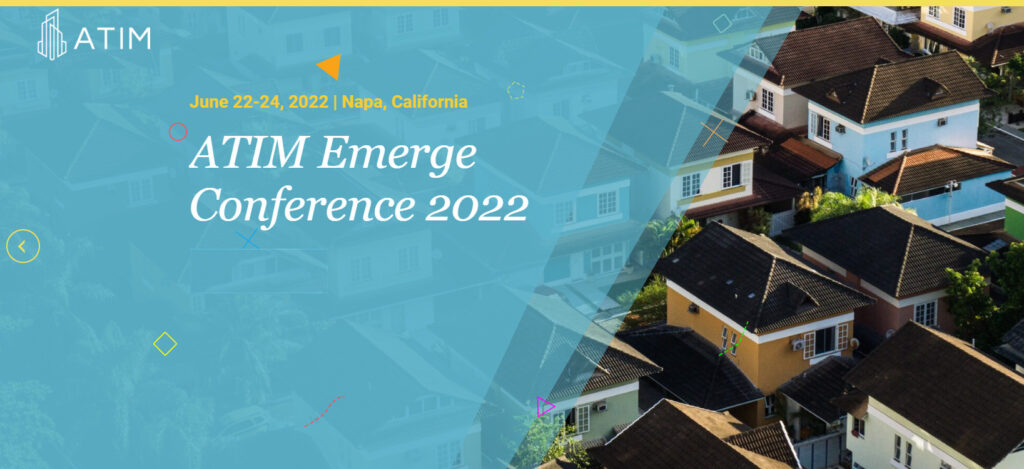
Last week I had the opportunity to physically attend this year’s Association for Title Information Management / ATIM 2022 conference. This year it was held in beautiful Napa, California. The venue was great and the people I spoke with were excited. But what was most stunning was the evidence of change now underway in the Title Insurance industry. For those unable to attend, I thought it would be helpful to share a few of my observations and insights. One thing I have observed is that during periods of rapid change it can be difficult to stay current on industry trends. Hopefully, these insights can provide insights on future business planning for other Title Insurance industry professionals unable to attend this year’s ATIM 2022 conference.
Expect Changes to Continue
During the past few years, we have seen an unprecedented level of change and digital disruption. Not only has change been rampant, but the rate of change has accelerated. We have all seen this firsthand in our personal lives. The Title Insurance industry has been no different. It seems like we had six years of digital transformation in the last six months of 2020. That rate of change hasn’t slowed down!
The sudden shift to “touchless” or “remote” real estate transactions during the pandemic brought an immediate need to convert manual, paper-based processes to digital workflows. While the transition is still in progress, it is remarkable how far we have come. Today’s accepted norms have changed. After speaking with other attendees, the culture behind digital workflows has also changed.
See this article to learn more, Is Digital Title Insurance a Sure Thing For The Future?
Knowledge Transfer of an Aging Workforce
This topic arose during several conversations at the ATIM 2022 conference. Increasing interest rates and the growing threat of a recession are expected to result in staffing adjustments. In some instances, this shift has already begun. A top concern is what to do with all the industry knowledge of all the senior members of the workforce that might not come back? Many will choose to retire. How can this knowledge be best captured, documented, retained, and then utilized?
One approach is to invest in the digitalization and automation of workflows and processes. Time can be invested to speak with these industry veterans and document the processes they perform into automated sequences. Much has been accomplished over the past two years to streamline and simplify this learning process.
It came as a surprise to at least a few attendees when I shared that some of these projects could begin seeing results in just a few weeks. Initial costs are low enough that a Return on Investment of just a few months is possible during the first, initial steps.
Another surprise to attendees was the performance improvements now possible with document management and data extraction. Our Axis Smart Data Extraction™ is a managed service that can deliver about 95% accurate data retrieval during the first pass – at a scale of about a million documents a week. This information can be made available in a matter of hours, not days or weeks. Most were not aware that this level of performance was even possible.
Industry Scalability
The last noteworthy trend I heard discussed repeatedly was the expectation of a need for greater industry scalability. If you believe the future of the Real Estate and Title Insurance industry is digital, then that transformation will lead to future industry consolidation. This transformation can only occur if the underlying systems infrastructure is established, and processes can be performed at a higher volume. The first company that builds the right infrastructure to accommodate higher volumes will be the winner. With this higher scalability will come an ability to cut costs and provide the greatest value to customers and the overall industry.
New approaches to traditional processes continue to disrupt the status quo. As one example, just look at how the home purchase process has evolved to today. Buyers are increasingly using digital or web-based tools to research markets and available inventory. According to the 2020 KPMG Proptech report, real estate brokers are rapidly using digital technology. A digital strategy is in place for 58% of respondents, up from 52% in 2019 and 2018 (source).
This push to digital is shifting the effectiveness and placement of marketing campaigns. Savvy Real Estate brokers are investing in ways to drive awareness of their services online. Virtual open houses are possible and can provide a great way to help narrow down an active search.
This behavior change is now spilling over to other aspects of the Real Estate purchase process, including the purchase of Title Insurance. Those that can achieve a higher level of industry scalability can afford to invest more in marketing programs. New industry leaders will emerge as this cycle accelerates.
